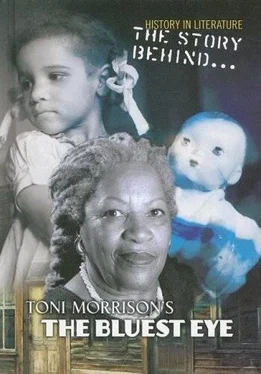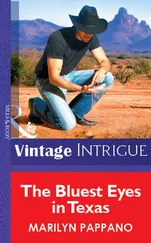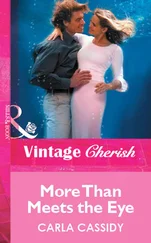Breedlove. In the center of the bedroom, for the even distribution of heat, stood a coal stove. Trunks, chairs, a small end table, and a cardboard "wardrobe" closet were placed around the walls. The kitchen was in the back of this apartment, a separate room. There were no bath facilities. Only a toilet bowl, inaccessible to the eye, if not the ear, of the tenants. There is nothing more to say about the furnishings. They were anything but describable, having been conceived, manufactured, shipped, and sold in various states of thoughtlessness, greed, and indifference. The furniture had aged without ever having become familiar. People had owned it, but never known it. No one had lost a penny or a brooch under the cushions of either sofa and remembered the place and time of the loss or the finding. No one had clucked and said, "But I had it just a minute ago. I was sitting right there talking to…" or "Here it is. It must have slipped down while I was feeding the baby!" No one had given birth in one of the beds-or remembered with fondness the peeled paint places, because that's what the baby, when he learned to pull himself up, used to pick loose. No thrifty child had tucked a wad of gum under the table.
No happy drunk-a friend of the family, with a fat neck, unmarried, you know, but God how he eats!-had sat at the piano and played "You Are My Sunshine." No young girl had stared at the tiny Christmas tree and remembered when she had decorated it, or wondered if that blue ball was going to hold, or if HE would ever come back to see it. There were no memories among those pieces.
Certainly no memories to be cherished. Occasionally an item provoked a physical reaction: an increase of acid irritation in the upper intestinal tract, a light flush of perspiration at the back of the neck as circumstances surrounding the piece of furniture were recalled. The sofa, for example. It had been purchased new, but the fabric had split straight across the back by the time it was delivered. The store would not take the responsibility… "Looka here, buddy. It was O.K. when I put it on the truck. The store can't do anything about it once it's on the truck…" Listerine and Lucky Strike breath. "But I don't want no tore couch if it's bought new." Pleading eyes and tightened testicles. "Tough shit, buddy. Your tough shit…"
You could hate a sofa, of course-that is, if you could hate a sofa. But it didn't matter. You still had to get together $4.80 a month. If you had to pay $4.80 a month for a sofa that started off split, no good, and humiliating-you couldn't take any joy in owning it. And the joylessness stank, pervading everything. The stink of it kept you from painting the beaverboard walls; from getting a matching piece of material for the chair; even from sewing up the split, which became a gash, which became a gaping chasm that exposed the cheap frame and cheaper upholstery. It withheld the refreshment in a sleep slept on it. It imposed a furtiveness on the loving done on it. Like a sore tooth that is not content to throb in isolation, but must diffuse its own pain to other parts of the body-making breathing difficult, vision limited, nerves unsettled, so a hated piece of furniture produces a fretful malaise that asserts itself throughout the house and limits the delight of things not related to it.
The only living thing in the Breedloves' house was the coal stove, which lived independently of everything and everyone, its fire being "out,"
"banked," or "up" at its own discretion, in spite of the fact that the family fed it and knew all the details of its regimen: sprinkle, do not dump, not too much… The fire seemed to live, go down, or die according to its own schemata. In the morning, however, it always saw fit to die.
HEREISTHEFAMILYMOTHERFATHERDICKANDJANETHE YLIVEINTHEGREENANDWHITEHOUSETHEYAREVERYH The Breedloves did not live in a storefront because they were having temporary difficulty adjusting to the cutbacks at the plant. They lived there because they were poor and black, and they stayed there because they believed they were ugly. Although their poverty was traditional and stultifying, it was not unique.
But their ugliness was unique. No one could have convinced them that they were not relentlessly and aggressively ugly. Except for the father, Cholly, whose ugliness (the result of despair, dissipation, and violence directed toward petty things and weak people) was behavior, the rest of the family-Mrs. Breedlove, Sammy Breedlove, and Pecola Breedlove-wore their ugliness, put it on, so to speak, although it did not belong to them. The eyes, the small eyes set closely together under narrow foreheads. The low, irregular hairlines, which seemed even more irregular in contrast to the straight, heavy eyebrows which nearly met. Keen but crooked noses, with insolent nostrils. They had high cheekbones, and their ears turned forward. Shapely lips which called attention not to themselves but to the rest of the face.
You looked at them and wondered why they were so ugly; you looked closely and could not find the source. Then you realized that it came from conviction, their conviction. It was as though some mysterious all-knowing master had given each one a cloak of ugliness to wear, and they had each accepted it without question.
The master had said, "You are ugly people." They had looked about themselves and saw nothing to contradict the statement; saw, in fact, support for it leaning at them from every billboard, every movie, every glance. "Yes," they had said. "You are right." And they took the ugliness in their hands, threw it as a mantle over them, and went about the world with it. Dealing with it each according to his way. Mrs.
Breedlove handled hers as an actor does a prop: for the articulation of character, for support of a role she frequently imagined was hers-martyrdom. Sammy used his as a weapon to cause others pain. He adjusted his behavior to it, chose his companions on the basis of it: people who could be fascinated, even intimidated by it. And Pecola. She hid behind hers.
Concealed, veiled, eclipsed-peeping out from behind the shroud very seldom, and then only to yearn for the return of her mask.
This family, on a Saturday morning in October, began, one by one, to stir out of their dreams of affluence and vengeance into the anonymous misery of their storefront.
Mrs. Breedlove slipped noiselessly out of bed, put a sweater on over her nightgown (which was an old day dress), and walked toward the kitchen. Her one good foot made hard, bony sounds; the twisted one whispered on the linoleum. In the kitchen she made noises with doors, faucets, and pans. The noises were hollow, but the threats they implied were not. Pecola opened her eyes and lay staring at the dead coal stove. Cholly mumbled, thrashed about in the bed for a minute, and then was quiet. Even from where Pecola lay, she could smell Cholly's whiskey. The noises in the kitchen became louder and less hollow. There was direction and purpose in Mrs. Breedlove's movements that had nothing to do with the preparation of breakfast. This awareness, supported by ample evidence from the past, made Pecola tighten her stomach muscles and ration her breath. Cholly had come home drunk. Unfortunately he had been too drunk to quarrel, so the whole business would have to erupt this morning. Because it had not taken place immediately, the oncoming fight would lack spontaneity; it would be calculated, uninspired, and deadly. Mrs. Breedlove came swiftly into the room and stood at the foot of the bed where Cholly lay. "I need some coal in this house."
Cholly did not move. "Hear me?" Mrs. Breedlove jabbed Cholly's foot. Cholly opened his eyes slowly. They were red and menacing.
With no exception, Cholly had the meanest eyes in town. "Awwwwww, woman!"
"I said I need some coal. It's as cold as a witch's tit in this house. Your whiskey ass wouldn't feel hellfire, but I'm cold. I got to do a lot of things, but I ain't got to freeze."
Читать дальше











